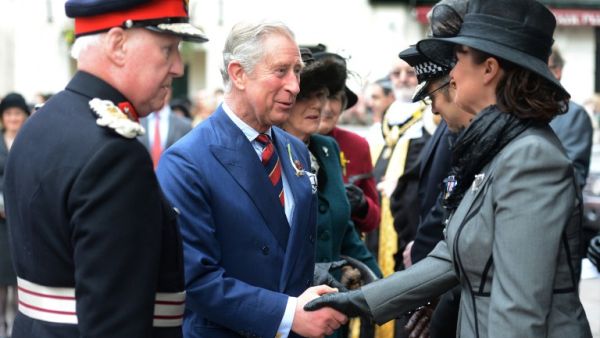The UK's Prince of Wales and the Duchess of Cornwall started a nine-day tour of the Middle East on Monday, which will take in Jordan, Oman, Qatar, and Saudi Arabia.
The royal couple are set to meet with other monarchs from across the region, with their first leg taking in Jordan.
The UK's ambassador to the Hashemite Kingdom explained that the visit is a big event for both countries. "It’s symbolic of the relationship between the UK and Jordan, which is very historical," Peter Millet said, according to the Jordan Times.
However, the royal tour has raised some eyebrows both across the region and in the UK.
The global human rights advocacy group, Amnesty International, urged Prince Charles, who is second in line to the UK throne, to raise human rights issues with the Saudi king while there.
The Saudi Kingdom has the highest execution rate in the world and on Sunday local media reported that the country, know for its austere interpretation of Islam, is suffering from a shortage of trained swordsmen to behead convicts.
“We’re not going to try to fill Prince Charles’ luggage with Amnesty reports. But if he or Camilla were to voice their royal displeasure at reports that a young Saudi jewel thief is facing crucifixion in a matter of days, that surely is their prerogative," Kate Allen, the UK Director of Amnesty said, UK newspaper, the Daily Mirror reported.
The Prince of Wales's private office released a statement saying that not only is the tour to show solidarity with Arab Kingdoms, but is also a tool to promote trade and between the burgeoning Gulf states and the beleaguered UK economy.
As Brian Whitaker, the former Middle East editor for the Guardian pointed out, the tour, the first since 2006, will help push military sales for the UK government but is fraught with difficulty. "One reason is that we don't know how long the monarchies will survive and weapons sold to them today could end up in entirely different hands a few years down the line," he wrote.
The tour comes at a particular tumultous period in the region's history, with even the usually sedate Gulf states seeing some protests. As Whitakar explained, to Arabs seeking change in their countries, it will look suspiciously like a royal solidarity visit. That familiar phrase, 'wrong side of history'comes to mind."







